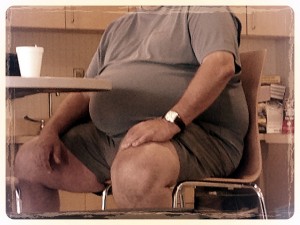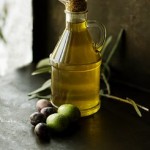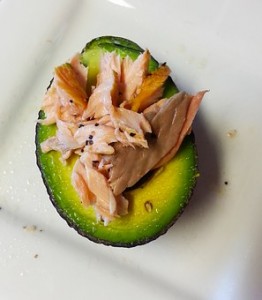
Eating any type of calories–fat as well as others–will only make you fat if you eat more than you burn. Image by Tony Alter
It’s week two of our four-week series debunking fat and muscle myths, and the falsehood we’re looking at this week is that eating fat makes you fat. One of the first dietary changes everyone from everyday people to bodybuilders make is to cut the fat but, as with most health and fitness issues, you need to be smart about it, paying attention to how much and which fats you cut. The advice that you need to eat fat comes from many experts, including the American Heart Association, a surprising source. It points out that fat
- serves as fuel for your body
- protects your organs
- promotes cell growth
- facilitates muscle movement
- is essential for nutrient absorption
- helps in the production of vital hormones
- assists in blood clotting
- reduces inflammation
- supports brain function, mental clarity, and concentration
That means that even competing bodybuilders should only reduce fat, not drop it from their meals altogether, according to FitnessHealth101. And if it’s useful for competitive athletes, then no one should cut fat from their diets entirely. Of course, the key to eating fat–or any type of calories–without getting fat is to burn more than you consume. Plus, the right kind of fat could be the secret you’ve been searching for to weight loss success.
Get Lean Eating Healthy Fat
Okay, read the title of this section again and concentrate on the word “healthy.” Not just any fat will help you lean-up, but the right kind can. A study published in the Journal of Neuroscience found that eating certain fats helped people lose weight. It turns out unsaturated fats cause the small intestine to produce oleoylethanolamide, a compound that sends a message to your brain that you’re full. Eating these fats help you lose weight by making your feel satisfied, so you’ll eat less overall. Plus, they provide energy for your body in addition to all the other benefits listed above.
Where to Get the Good Fat
There are a number of different kinds of fat, but only two types of unsaturated fats–monounsaturated and polyunsaturated–and they’re both good for you. They tend to remain in liquid form at room temperature, but can solidify when cooled. You should definitely be a label reader, and keep an eye out for either or both of them in foods you eat. It’s useful to know going in what foods are sources for these healthy fats. According to Harvard Health, the best sources of unsaturated fats include avocados, peanut oil and most types of nuts, olive and canola oils, corn oil, sunflower oil, and safflower oil. What’s more, Harvard Health also recommends omega-3’s as another type of healthy fat. You can always get them by taking omega-3 supplements, but many foods are naturally high in this healthy fat such as
- walnuts
- flaxseeds
- sardines
- salmon
- mackerel
- soybean oil (not the hydrogenated type)
More Good Health News on the Fat-Front

Olive oil is a fat that is not only vital for maintaining healthy, but can actually reduce your risk of issues such as heart disease and high cholesterol.
Many people have a mind-block against fats because they associate eating any type of fat with high cholesterol and heart disease as well as gaining weight. The truth is, not only can monounsaturated fats help you lose weight, but they can also help lower your risk of several health issues including cholesterol and heart problems. In fact, a study by Lukas Schwingshackl and Georg Hoffmann found that when several fats including animal and vegetable fats were compared, only olive oil was found to reduce risk of cardiovascular issues including strokes and death. So, healthy fats can help you live leaner and longer, too.

